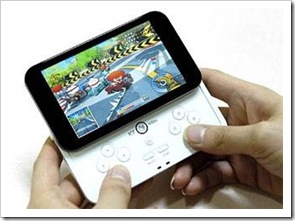Here is a typical scene in many homes these days: you come in the door, pass by the living room and see the TV on and one or two kids holding something in their hand, with a wire leading to just under the TV. The kids are totally absorbed in what is happening on the screen and ignore you completely, while pressing buttons and pushing little levers on the box in their hands.
Whether there is only one child involved or more, whether the child appears to be frozen, except for the fingers, or very animated and even emits strange calls and sounds from time to time and whether the box of controls is plugged in with a cable or is the more modern wireless Wii variety, most parents find the scene disturbing.
In fact, many parents only buy these game consoles for their kids to comply with “social norms”, so that their kids will be accepted by their already-well-equipped friends. They are just trying to be good to their kids. Once the purchase is over, the cycle of resentment and arguments begins, in which the parents want their kids to go out and play, come to dinner, communicate with the rest of the family and develop some other hobbies, but the kids just keep on playing.
If this is happening in your home, please raise your hand.
OK, you can put it down now.
Hands up if your kids sit in the car, listening to music on headphones and/or playing those handheld games while you drive and try to have a nice family conversation.
OK, thank you. I appreciate your honesty and your courage in sharing.
 Ronit and I are so against these devices, our kids do not have them. They have never had them. They get to play with them occasionally, when we visit other kids, but they know they will never get their own.
Ronit and I are so against these devices, our kids do not have them. They have never had them. They get to play with them occasionally, when we visit other kids, but they know they will never get their own.
Strangely enough, our kids have never suffered socially because they did not have a game console. When faced with the challenge “What, you don’t have a [insert latest brand and model here]?!” they say, “No. Wanna bounce on the trampoline [or string beads or make our own pizza for lunch or color in or any other fun thing]?”
Maybe this is why they sing, dance, play music and participate in sports.
Maybe this is how they find their friends, the kind that sings, dances, plays music and participates in sports.
A few weeks ago, I read an article in a magazine, which claimed that parents are just not up to date with changes in the world. The writer says that the kids now live in a different reality to the one we grew up in and that the things they do will equip them better to handle the future, a future without milkmen, long play records and dial-up Internet. He suggests we leave our kids alone, because they will be better drivers at 16 than we ever were by playing a driving-simulation game on their console and developing their visual perception and hand-eye coordination.
I agree to this in part. Our kids will be adults in a world that is different to ours. At the same time, nobody, not even the writer of that article, can really tell what that world will be like.
It is very likely that the entire field of medicine and that of nutrition will be different for our kids and that they will live longer than us. It is very likely that technology will enable them to manipulate things electronically at work and at home and even talk to robotic help in various shapes and forms.
What I am saying is that our kids face a future we know nothing about, but game consoles will not prepare them for it.
 At the risk of appearing old-fashioned, I want to put forth a case for human interaction and emotional intelligence as the best tools to handle any future. Computers, however smartly programmed, can only simulate a real person at best. Digital images, no matter how high their quality is, can only simulate real experience, including motion, smell, taste and feelings. Pre-recorded, and even cleverly assembled responses are no replacement for the understanding, the warmth and the support of another human being.
At the risk of appearing old-fashioned, I want to put forth a case for human interaction and emotional intelligence as the best tools to handle any future. Computers, however smartly programmed, can only simulate a real person at best. Digital images, no matter how high their quality is, can only simulate real experience, including motion, smell, taste and feelings. Pre-recorded, and even cleverly assembled responses are no replacement for the understanding, the warmth and the support of another human being.
The longer our kids live, the more they will have to handle change. Can they learn this by playing the same game again and again and staying in one place?
The longer they live, the more they will have to work in a team with other people, spend quality time with friends and family and take responsibility for their actions and feelings. Can they learn this by playing on their own, in order to get the most game time?
The longer our kids live, the more meaning they will need to sustain their spirit and give them peace and happiness in life. Can they learn their purpose and values by looking at the TV screen and pushing buttons and levers?
I think not!
I think that sitting in front of some electronic device and giving it their full attention takes away from kids the most valuable skills they can get for a healthy, successful and happy future.
So face your fears about depriving your kids of what “everybody else has”. It is far more important what kind of people they grow up to be and what kind of skills and focus they will have as adults. Kick them out of the house and help them develop a healthy activity schedule, which includes the physical, the artistic and the social, and see them blossom into beautiful people with big smiles and lots of exciting stories to tell you as soon as you walk in the door.











